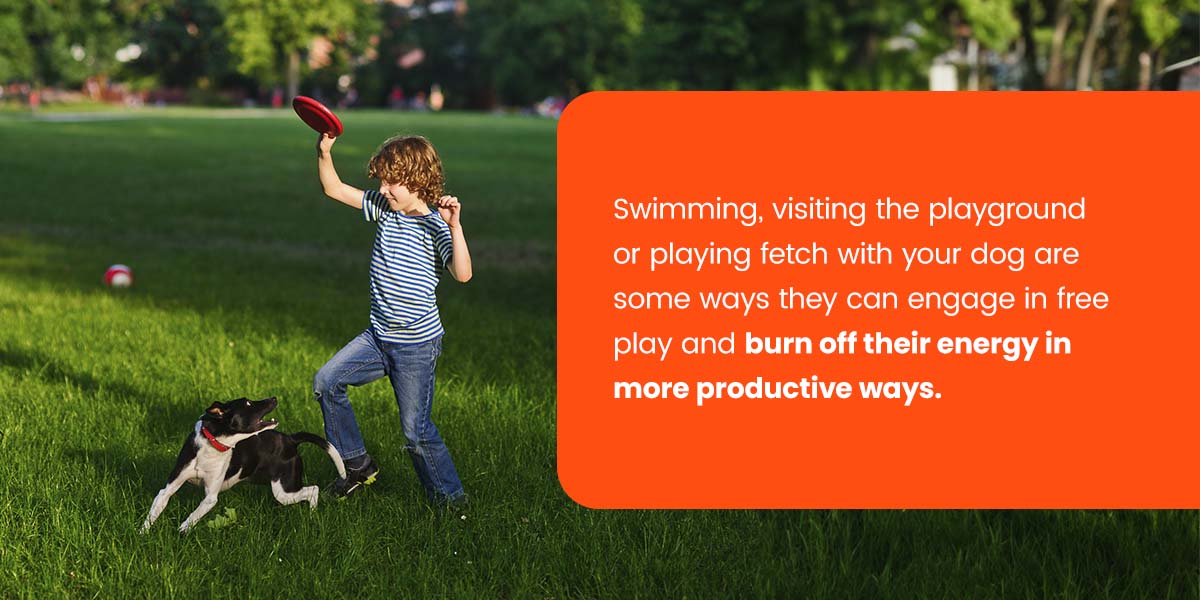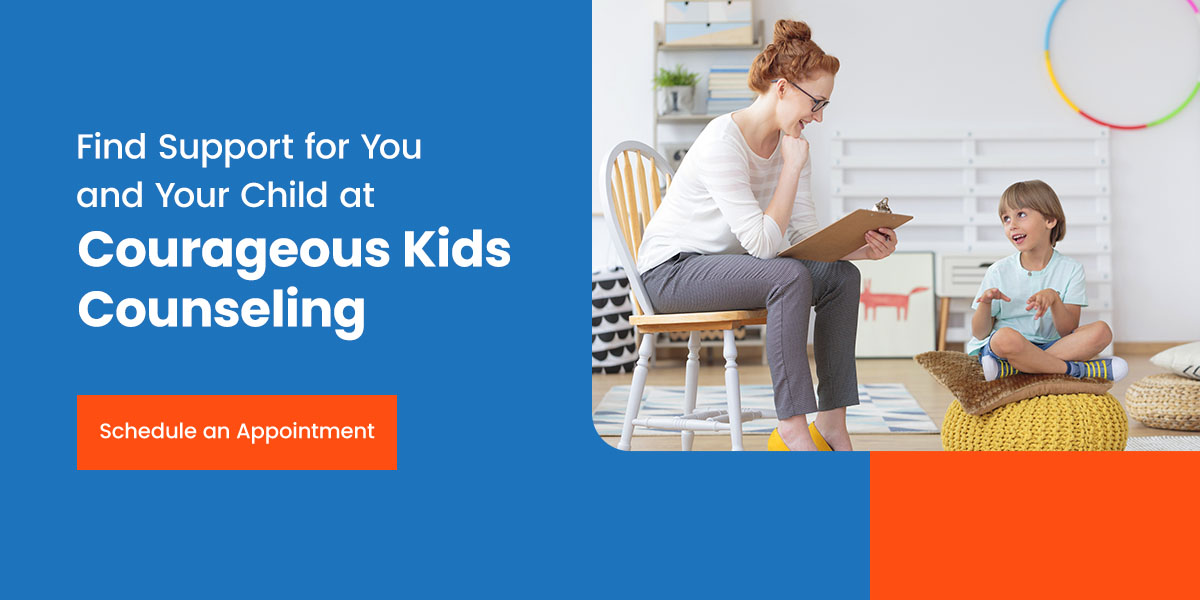An estimated 6 million children were diagnosed with attention-deficit/hyperactivity disorder (ADHD) between 2016 and 2019, and it is the most commonly diagnosed behavioral disorder among children. Children with ADHD can easily become overstimulated and often struggle with impulse control. As a result, many parents of children with ADHD feel overwhelmed at times. One study revealed that parents, particularly mothers, experience high levels of stress when parenting a child with ADHD. The study also found that stress levels increase without adequate support.
As a parent of a child with ADHD, you may feel frustrated or disrespected by your child’s actions. If you find it challenging to maintain composure when addressing your child’s behavior, you’re not alone. We’re here to discuss the connection between ADHD and behavioral issues and how you can avoid parental burnout with patience strategies.
Understanding ADHD in Children
ADHD is often diagnosed during childhood, but it can continue into adulthood. Signs and symptoms of ADHD in your child include:
- Impulsivity.
- Poor time management skills.
- Hyperactivity, restlessness or fidgeting.
- Trouble concentrating or paying attention.
- Difficulties sitting still.
- Talking excessively.
- Disorganization.
- Forgetfulness.
- Low frustration tolerance.
You may notice that your child often has trouble listening to directions or waiting for their turn. Emotional dysregulation is a core symptom of ADHD in childhood, resulting in irritability, executive function deficits and functional impairment.
Patience Techniques for Parents
It’s important to note that your child’s behavior is not their fault — or yours. However, having patience with your child isn’t always easy when their ADHD symptoms are untreated or unmanaged.
Here are some practical parenting strategies for ADHD to help build your patience.
1. Try to Understand Their Point of View
It can be helpful to consider your child’s perspective when you feel overwhelmed. They are not intentionally trying to annoy or ignore you. Perhaps your child refuses to try something new or loses interest in activities because they’re not confident in their abilities. Building understanding can foster patience and help you maintain composure in challenging moments.
2. Prioritize Self-Care
It can be challenging to have patience when you feel like you’re at the end of your rope. Create a routine around your child’s needs to find time for yourself. Whether it be journaling, blasting your favorite music, taking a bath, going to the gym or calling a friend, deliberate acts of self-care and mindfulness can make a huge difference in stress reduction.
3. Ask for Help
You’re only human — it’s normal to lose your patience from time to time. Give yourself a well-deserved rest or some extra free time. Consider reaching out to family members, friends or a nanny to stimulate your child and give you the chance to relax.
4. Have Compassion
Consider your own experience as a parent of a child with ADHD. Do you often feel frustrated that you cannot “control” your child’s behavior? Do you have negative thoughts about being a bad parent? Having compassion for yourself is important for building patience for your child.
Acknowledge that you do the best you can for your child, and talk kindly to yourself. When you treat yourself with care when you’re not having the best day, you’ll hold more space for your child to make mistakes as well.
5. Encourage Adequate Activity and Sleep
Children with ADHD often have a lot of energy, which can result in hyperactivity at inappropriate times. Swimming, visiting the playground or playing fetch with your dog are some ways they can engage in free play and burn off their energy in more productive ways. Your child may also be interested in signing up for a team sport, which can help them build social skills.

Frequent exercise can help your child sleep better, which is critical for reducing symptoms of ADHD. Removing distractions like screens, TVs, gadgets and computers can also help them wind down before bedtime.
Effective Discipline Strategies for Children With ADHD
Disciplining a child with ADHD requires setting them up for success. Here are some strategies you can implement to suit your child’s ADHD needs.
1. Set Realistic Expectations
You may be more likely to lose your composure or become frustrated if you feel like your child is refusing to focus or listen to your directions. Because children with ADHD struggle with concentration, it’s essential to set realistic goals and expectations. Identify what your child struggles with and create reasonable goals they can achieve.
Something as simple as setting visual timers can help your child stay on track. When you consistently discuss the rules, rewards and consequences with them, they’ll likely retain how they’re expected to behave.
2. Communicate Without Yelling
If you’ve ever yelled at your child, you are not a bad parent. However, it’s not the most effective strategy. Outbursts of anger or frustration toward your child can make it even more challenging for them to learn emotional regulation. Children can perceive yelling as threatening, which can do little to improve the situation or help them learn better behavior. Yelling at children is also known to have long-term effects like low self-esteem, aggression and anxiety.
Building strong communication skills is key when disciplining. Try these alternative communication strategies:
- Making eye contact while speaking
- Singing a song or acting silly to help them engage
- Speaking directly, but with empathy
- Using active listening so your child feels heard
- Asking open-ended questions
3. Create a Consistent Routine
Has your child ever had a meltdown or become stressed when their schedule changes? Do unexpected plans often lead to behavioral difficulties? Children with ADHD need consistency and structure. A consistent routine creates a predictable environment, helping them feel safe and secure. The structure of school can help, but building a regular schedule of tasks at home can also add stability to your child’s life and potentially reduce symptoms.
While there will always be things out of your control, your child should generally know what to expect each day. You might schedule specific times for chores, eating, physical activity and getting ready for bed. Your child may resist the routine at first, but it’s important to stick to it.
4. Use Positive Reinforcement
Positive reinforcement and praise can also be an effective discipline strategy. As much as discipline is necessary when your child exhibits negative behaviors, it’s also good to reward their positive behaviors. Whether you create a reward system or simply praise them for a job well done, giving your child positive attention can motivate them to maintain better behavior.
Behavioral Strategies and Support Resources for ADHD Families
Many parents of children with ADHD report higher levels of burden, stress, depression and anxiety, making self-care and stress management for parents of children with ADHD necessary. You and your child’s well-being can easily become influenced by high levels of stress and frustration, which can result in caregiver burnout.
Likewise, research indicates that poor mental health is associated with compromised patience, managing skills and cognitive function. If this sounds like you — know that you’re not alone. There are child therapies, interventions and support resources for you and your family. Your child with ADHD may benefit from the following therapeutic approaches to help manage their symptoms:
- Cognitive behavioral therapy (CBT)
- Dialectical behavioral therapy (DBT)
- Eye movement desensitization and reprocessing (EMDR)
- Play therapy
Find Support for You and Your Child at Courageous Kids Counseling
Though these strategies are excellent ways to implement healthy discipline and communication, you should also prioritize your own needs by reaching out for support. At Courageous Kids Counseling, we offer professional therapy services to help children learn how to effectively manage ADHD symptoms.
With the support of a compassionate mental health professional, your child can better understand their thoughts, feelings and behaviors and build skills to minimize behavioral issues. Courageous Kids Counseling is here to empower you and advocate for your child’s needs in Nyack, New York. We invite you to learn more about our experience with behavioral disorders by scheduling an appointment today.




